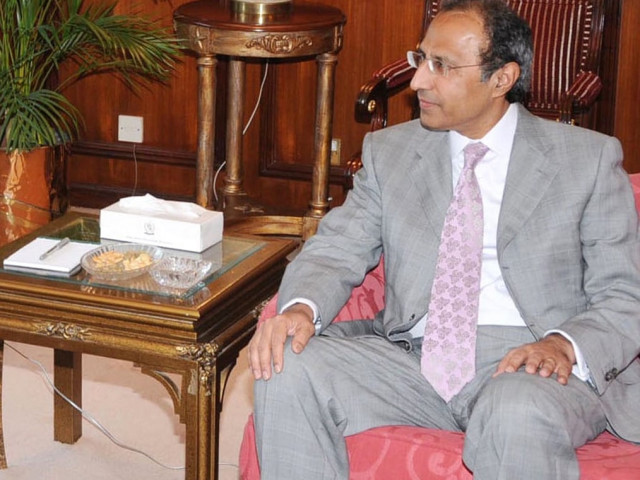Wavering decision-makers: Government dithers at economy’s expense... again
Meeting between prime minister and finance minister inconclusive.

The government has once again refused to make a decision on the tough, but necessary, measures recommended by the International Monetary Fund to close the federal budget deficit.
A meeting between Prime Minister Yousaf Raza Gilani and Finance Minister Abdul Hafeez Sheikh ended without any firm decisions or commitments being made to phase out electricity subsidies or levying new taxes. The finance minister reportedly briefed the prime minister on the recently concluded talks with the IMF, a staff-level delegation of which left the country unimpressed with Islamabad’s ability to get its own fiscal house in order.
Most observers suggest that, despite being aware of the need to implement the fiscal reforms quickly and in full, the government’s recent political troubles have kept the PPP-led administration from taking the hard decision that would likely be politically unpopular. Troubles within the coalition as well as a resurgent opposition mean that the government has very little political capital left to expend on decisions whose pain will be felt long after any benefits will begin to accrue for the economy.
“It is a weak and lame duck government that does not have the spine to take difficult economic decisions”, said Dr Ashfaque Hasan Khan, the dean of the business school at the National University of Sciences and Technology.
According to a brief government handout, the prime minister discussed “measures for expenditure control and revenue mobilization” with the finance minister, without indicating any outcome of the meeting.
Pakistan has assured the IMF Mission that it would take new tax measures for collecting at least Rs 25-30 billion to minimise the rapidly increasing shortfall in tax collection. The government also promised to minimise and eventually eliminate power subsidies. According to the commitment Pakistan was supposed to increase power tariff by at least 2 per cent not later than last Saturday and withdraw sales tax exemptions on many categories of goods no later than March 31.
With every day the government delays taking the reform measures, the amount of money it can raise through new taxes within the current fiscal year is decreasing. The Federal Board of Revenue has already been revising its tax collection target downwards by at least Rs34 billion.
Islamabad has assured the IMF that it will levy a flood surcharge of 15 per cent on withholding taxes, increase the special excise duty rate by 150 per cent to 2.5 per cent and withdraw tax exemptions on several sectors: garments, surgical and supports goods, carpets and leather. It also committed to withdraw tax exemptions on the sale of pesticides and fertilizers.
While the IMF team has left Pakistan, the two parties are still negotiating “to come to a point of convergence that may take another two weeks,” said one government official who participated in the talks. He added that the government would have to deliver on its word before March 31.
He warned that if the government chose not to take any action, the country would face a repeat of the financial crisis of 2007-2008, when the country faced a massive balance of payments crisis that resulted in Islamabad turning to the IMF in the first place.
A power ministry official said on Monday that a notification of price increases was pending in the law ministry.
The government cannot legally increase the power tariff more than the lowest tariff of all eight power distribution companies.
Currently, the Islamabad Electric Supply Company tariff is the lowest one.
During last two months the government increased IESCO tariffs, creating room for increasing tariffs at the national level.
Published in The Express Tribune, March 15th, 2011.



















COMMENTS
Comments are moderated and generally will be posted if they are on-topic and not abusive.
For more information, please see our Comments FAQ